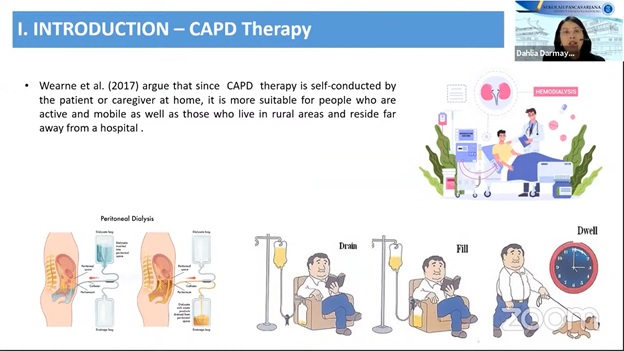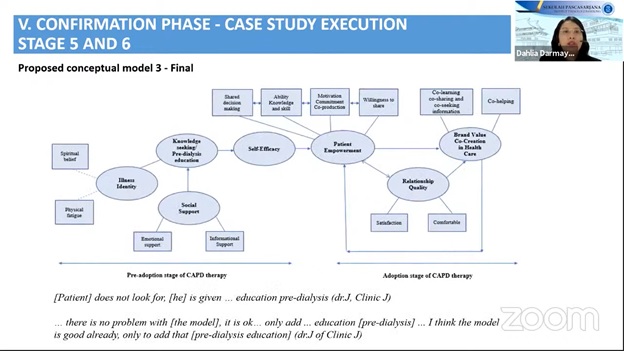We should be grateful that management science can cause a “ripple effect” in the healthcare industry. Dahlia Darmayanti’s innovation is expected to bridge the interests of patients’ lives for treatment and activities outside the hospital. This woman, a Lecturer & Subject Content Coordinator at Bina Nusantara University, reconstructs the therapeutic process for healing chronic diseases so that it can be done outside of the hospital in her dissertation entitled “Brand Value Co-Creation in Healthcare”.
 Everything starts with a paradigm shift in the management process. The concept of transferring the value of goods and services from Goods-Dominant Logic to Service-Dominant Logic. This shift creates a shifting from a firm-centric to a customer-centric mindset. In other words, the company’s focus has shifted from the quality of its products to providing the best service to its customers. This paradigm also encourages consumers to be more engaged in the acceptance process. It is hoped that consumers will get the most out of the company through feedback and good relationships.
Everything starts with a paradigm shift in the management process. The concept of transferring the value of goods and services from Goods-Dominant Logic to Service-Dominant Logic. This shift creates a shifting from a firm-centric to a customer-centric mindset. In other words, the company’s focus has shifted from the quality of its products to providing the best service to its customers. This paradigm also encourages consumers to be more engaged in the acceptance process. It is hoped that consumers will get the most out of the company through feedback and good relationships.
Outpatient treatment is difficult for chronic kidney patients with limited access to hospitals. Furthermore, only professionals handle Continuous Ambulatory Peritoneal Dialysis (CAPD) in Indonesia. Thus, the patient’s risk of death increases as they get closer to the hospital.
However, with the Brand Value Co-Creation management method in place, the CAPD can be performed independently or with the assistance of others. This method is ideal for active people with high mobility.

Factors Influencing Brand Value Co-Creation
Dahlia stated that many factors contribute to the health benefits of the CAPD method. Internally, it requires self-acceptance and understanding of the disease, knowledge and information about the illness, the patient’s eagerness to recover, motivation, and commitment. Externally, patients require doctors’ and medical personnel’s expertise and relationships, easy access to information and knowledge, and emotional support from family and the environment. The factors of patient satisfaction, comfort, and the influence of treatment techniques all play a role in their health.
“Patients who understand their disease are more likely to make decisions to follow related procedures and cooperate in carrying out therapy. Patient empowerment and the quality of relationships between many parties, such as patients and doctors, medical personnel, and even fellow patients, are important supporting factors. When therapy is running, fellow patients can usually share their experiences and knowledge,” the Umpad and Thunderbird School of Global Management graduate concluded.
For more information, visit https://www.youtube.com/watch?v=XNYsmzuB 4I.




